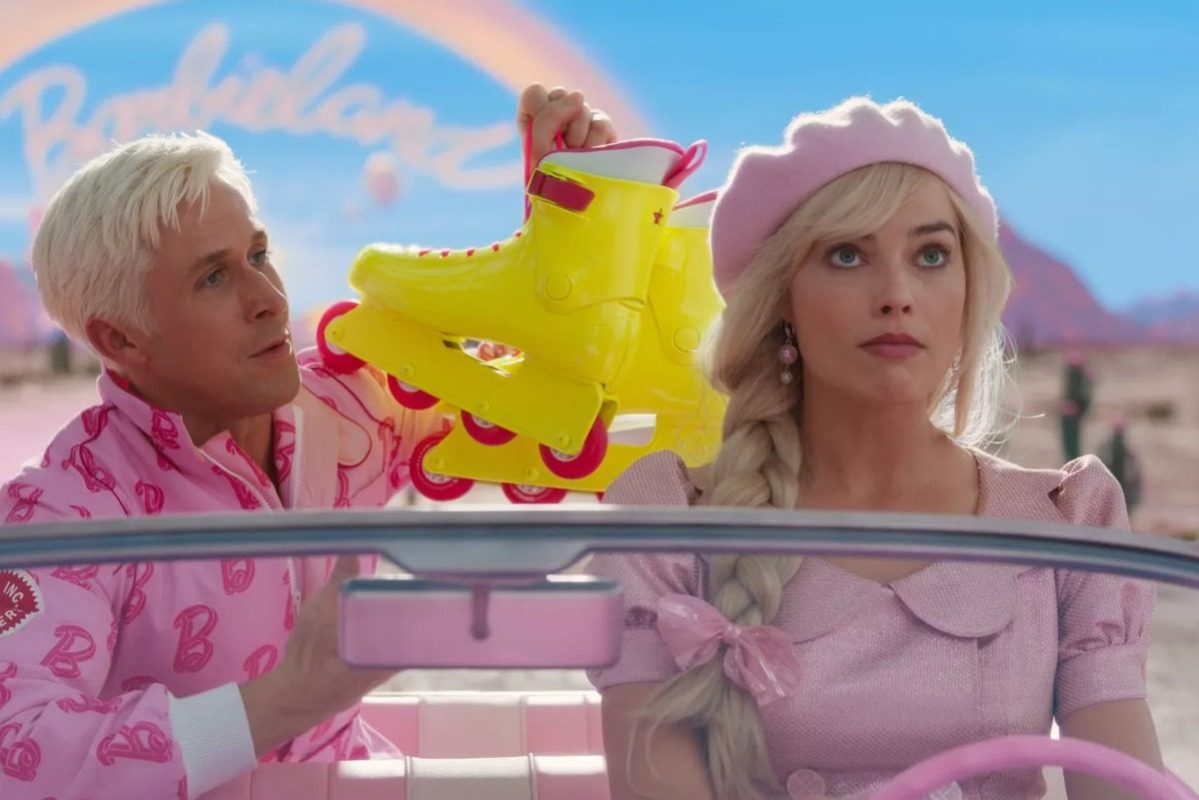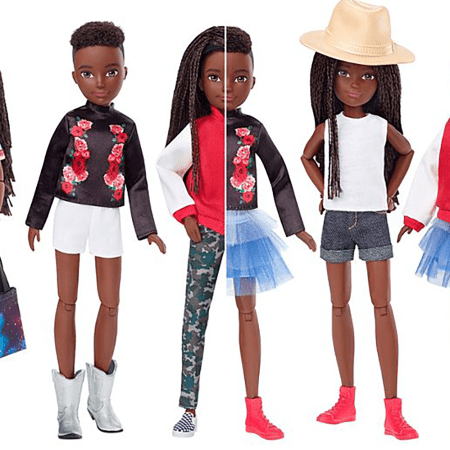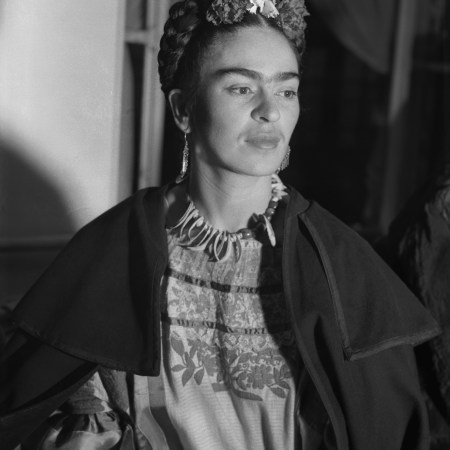Movie studios’ love of brands and ability to convince talented filmmakers to make movies about those brands have turned big-budget auteurism into a kind of shopping-spree scavenger hunt: Rummage through these shelves and see if you can find the director’s sensibility hidden behind all the bric-a-brac. And just when it seems like the biggest brands going — superheroes of the Marvel and DC variety — might show signs of consumer weakness (however slight), along comes a New Yorker profile reiterating the plans of toymaker Mattel to enter the narrative-cinema space and entangle as many talented directors as they can in the process. (If most of these dozens of projects never come to pass, well, at least they’ll have tied up a bunch of talented for an indeterminate development period.) So far, this mission has yielded exactly one movie, arriving on a wave of hype so massive that Mattel obviously thought they could sneak some Hot Wheels and Uno excitement alongside it: Barbie, from Greta Gerwig. Yes, the writer-director behind Lady Bird and Little Women has been granted guardianship of another independent young woman who, in this case, is also an inanimate child’s plaything.
That contradiction is at the heart of Gerwig’s film, which is in part about the attempt, so common in IP-excavation, to locate a soul beneath plastic skin. Gerwig hasn’t exactly made her own movie-that’s-really-about-making-movies; Barbie isn’t quite The Life Aquatic (though it shares a co-writer in Noah Baumbach, friend of Wes Anderson and partner of Gerwig, as well as a cheerful layer of carefully constructed unreality) or Inception (though it shares some unreality with that one, too, plus a release date with Christopher Nolan’s less fanciful Oppenheimer). But it is a sincere and strange attempt to understand a fashion doll’s cultural impact (or lack thereof), both unlike anything Gerwig has made before and entirely compatible with her ongoing interest in how women attempt to live in a cruel and hostile world.
In Barbieland, that world is nowhere in sight, replaced with a welcoming expanse. Barbies of all shapes, sizes and colors enact a brand manager’s dream of disposable product as inclusive utopia. Barbie is president, Barbie is the Supreme Court, Barbie is a fun-loving DJ, Barbie is the gal next door — all that in addition to Barbie being “the Barbie that you think of when someone says ‘think of a Barbie’” (that’s the one played by Margot Robbie; Issa Rae, Alexandra Shipp, Hari Nef and Dua Lipa, among others, populate the rest of the Barbie landscape). Ken is, well, also there, also in multiples, radiating a collective desire for Barbie’s attention embodied by a particularly needy version (Ryan Gosling) jockeying alongside other hunks (Simu Lu, Kingsley Ben-Adir, and so on) whose general occupation can be (and is) described as “beach.”
The Barbies are vaguely guided by the invisible hands of the kids who play with them (which explains why the Kens have much less agency overall; they’re accessories, same as the Dream Houses or the convertibles). The dolls share a spiritual connection with their unseen owners, which is why Robbie’s Barbie starts to have intrusive thoughts about death, which in turn throws her whole perfect world out of whack. She learns she must visit the real world, find the child causing these malfunctions, and, well, resolve them somehow? The movie’s plotting is sometimes ungainly (albeit knowingly so): it’s a kid-movie toy-gimmick story straight out of a screenwriting manual, overlaid with the kind of adult frustrations that resist a solution quest.
This dual-layered system means accommodating the shtickiness of Kate McKinnon, doing straight SNL as “Weird Barbie,” a guru of misfit toys whose advice is sought by our point-of-view Barbie (shorthanded as “Stereotypical Barbie”), alongside the ongoing meta-movie-star anguish of Margot Robbie, who has become an expert at conveying the panic or aggression beneath her million-watt smile and picture-perfect beauty. The truth is, she’s played spiritual dolls before; who is Harley Quinn if not the Joker’s would-be plaything imbued with vengeful action-figure sentience? In Wolf of Wall Street, she looks more like a Barbie than she does in Barbie. In Babylon, she’s a ruthlessly driven actress with eye-catching fashions, able to summon convincing ersatz emotion on command. These qualities briefly make her a superstar to be used up — played with and discarded — by the Hollywood system.
Robbie cries in close-up again in Barbie, touchingly adrift when she realizes that playing with Barbies has not, in fact, healed the world’s sexism and inspired girls everywhere to grow up to be whatever they want. This tear-stained epiphany arrives relatively early, when it feels like Gerwig is setting up a fish-out-of-water comedy where Barbie’s feminist poptimism will butt against the harsh realities of the real world. And to an extent, this is what the movie does. But Gerwig also seems to understand that in these kinds of culture-clash comedies (think of The Brady Bunch Movie from 1995), the “realness” contrasting with characters’ sunny outlooks can be just as corny, and sometimes vastly more dated, than the cartoon world that’s supposed to be rebuked (and then eventually redeemed) by this conflict. Here, Gerwig and Baumbach retain some real-world unpleasantness, like the default patriarchy that shocks and confuses Barbie (and entices her stowaway partner Ken), while also refusing to confine the cartooniness to Barbieland. The movie gets loopier and faster as it goes.
Gerwig’s tempo as a filmmaker has always been quick; even before she directed her first movie on her own, you could feel her rhythms speeding up the already-concise Baumbach as star and co-writer of Frances Ha, which made punchlines out of interrupting cuts. In Barbie, time moves elastically, even outside of Barbieland; at one point, Ken has a montage of real-world experiences that should take hours, before returning to Barbie within the space of a conversation she has with another character. Early on, the movie notes that in Barbieland, the characters can move with the shortcut suddenness of toys at play — that is, the living dolls don’t often have to go through the quotidian business of walking down the stairs and out the door, because children just whoosh their characters ahead as needed. Gerwig takes it upon herself to do the whooshing, and at times, the movie threatens to somehow outrun itself, or maybe to chase its own self-conscious tail and fall down dizzy. This is especially true when Helen Mirren’s narration track pipes in, usually without much need (and at one point practically apologizing for centering the traditionally gorgeous Robbie), applying some narrative duct tape to an intentionally cracked and inconsistent world. These explanations and excuses feel far more Mattel-mandated than the actual Mattel CEO character, unnamed and undignified. He’s played with lunacy by Will Ferrell, suggesting the kind of satire Adam McKay could have made if he wasn’t so dead set on a lecture.
Why Greta Gerwig Deserved a Best Director Nomination for "Little Women"
With anyone else at the helm, “Little Women” would have been an entirely different movieBarbie does deliver some lectures of its own on the endless challenges of womanhood, mostly courtesy of Gloria (America Ferrara), a real-world professional who hangs on to her Barbie fandom out of both loyalty and desperation. Gerwig and Baumbach are writing in a more overt, subtext-forward style here; there’s not much of the characterization through dialogue seen and heard in either filmmaker’s other screenwriting, unless you count the moments where the Barbies and the Kens characterize themselves directly, which isn’t quite the same thing. One particular climactic conceit, about the self-actualizing power of giving voice to our frustrations even when we can’t solve them out of existence, could even be accused of taking a didactic view of art and self-expression: Saying the thing becomes more important than how it’s said.
But Barbie isn’t designed for that same level of intimacy as Gerwig’s earlier, smaller films — nor is it a tribute to the healing power of play a la The Lego Movie, a similarly self-referencing brand extension that both celebrates and affectionately mocks its universally known toy products. It has a more symbiotic view of how play becomes wearyingly, terrifyingly freighted with real-world meaning, which helps explain why the movie’s vision of the real world is somehow both whimsical and jaundiced. (The other explanation is that Gerwig and Baumbach, who obviously love a good, ridiculous joke, just thought it was funny to have a bunch of besuited executive types running around like hired goons.) Ken, for example, explores the delights of a society that caters to the whims of men and, as part of his bro awakening, becomes fixated on horses — less for their animal qualities than their function as an extension of manliness. As toys, in other words. The movie itself extends that tactile fakeness; though it obviously uses plenty of computer effects, its pink-centric look, where anything that can’t be reproduced in plastic is simply eliminated, has the vivid pop of a 1950s musical (or a 1990s music video playing intentionally inexact homage to decades-earlier pop culture).
All of these new filmmaker toys makes Barbie a more lumbering experience than Lady Bird, or Frances Ha and Mistress America, the Gerwig/Baumbach screenplays with which it shares its adulthood anxieties. No matter how much spring in its step — and its stars, particularly Robbie and Gosling, provide plenty — it’s less equipped to hustle and pivot with the same nimble wit as its smaller-scale predecessors. It’s carrying around the contents (and the #content) of the Mattel toybox, which seems lightweight until a few decades’ worth starts to pile up. Eventually, Gerwig uses this as an advantage; passages of this fantasy comedy are surprisingly moving. The fact that the Barbie movie traffics in no small amount of exhaustion — a bleary, triumphant attempt for Gerwig to express herself through plastic junk — makes it feel simultaneously like the first and last Mattel Motion Picture ever made. Even if it’s not the last — it almost certainly won’t be — it’s some kind of grown-up miracle that Gerwig makes that hunt for meaning into such an affirming good time.
This article was featured in the InsideHook newsletter. Sign up now.
























